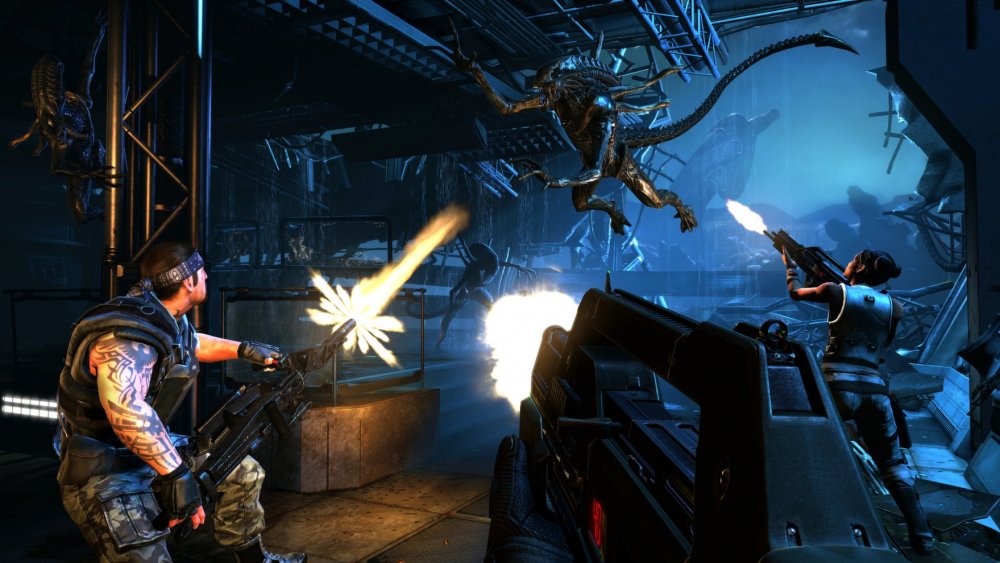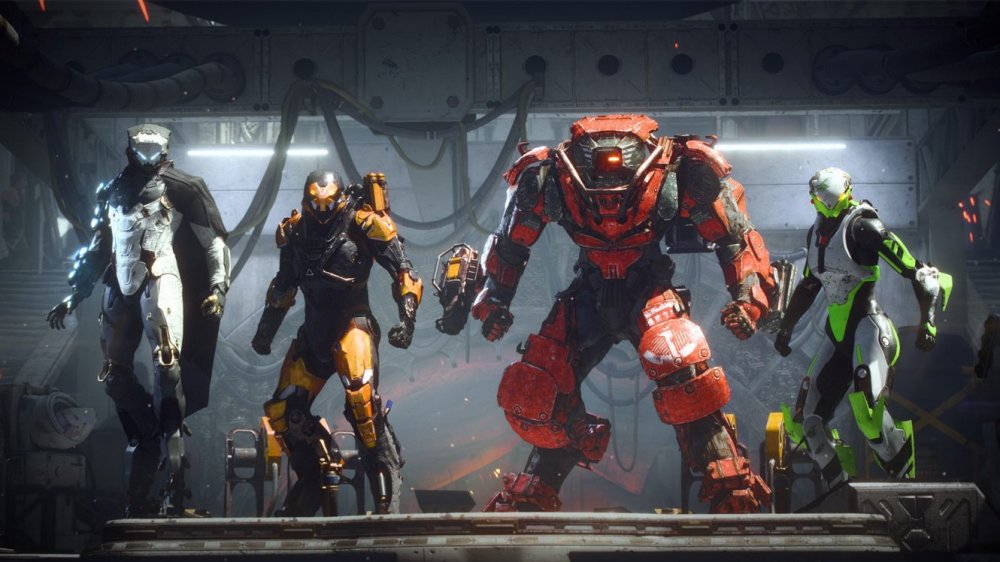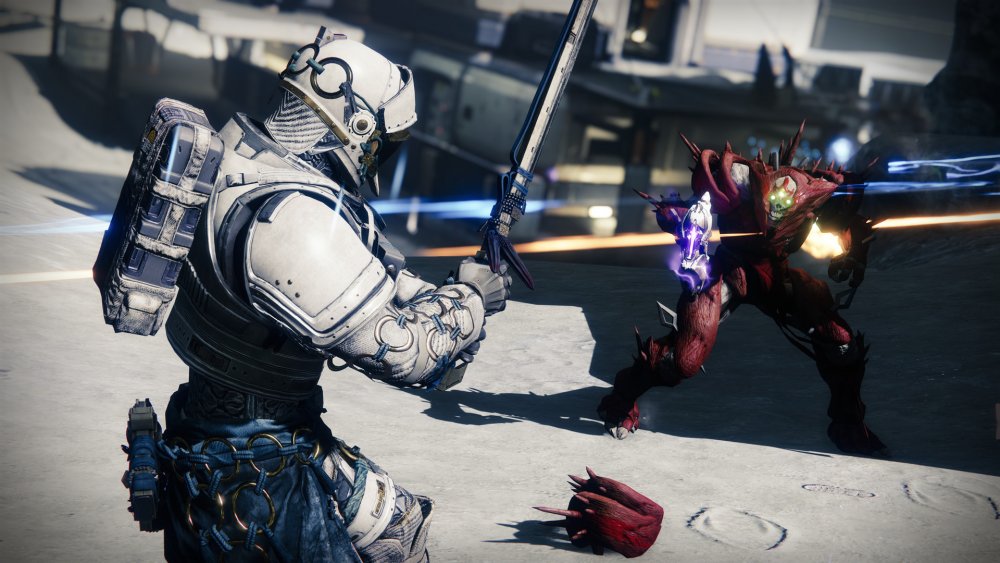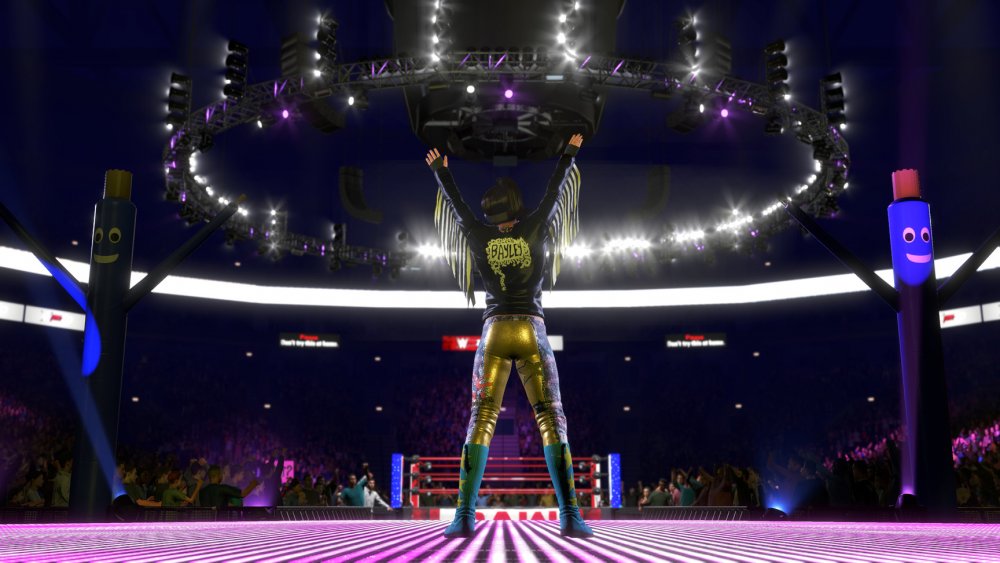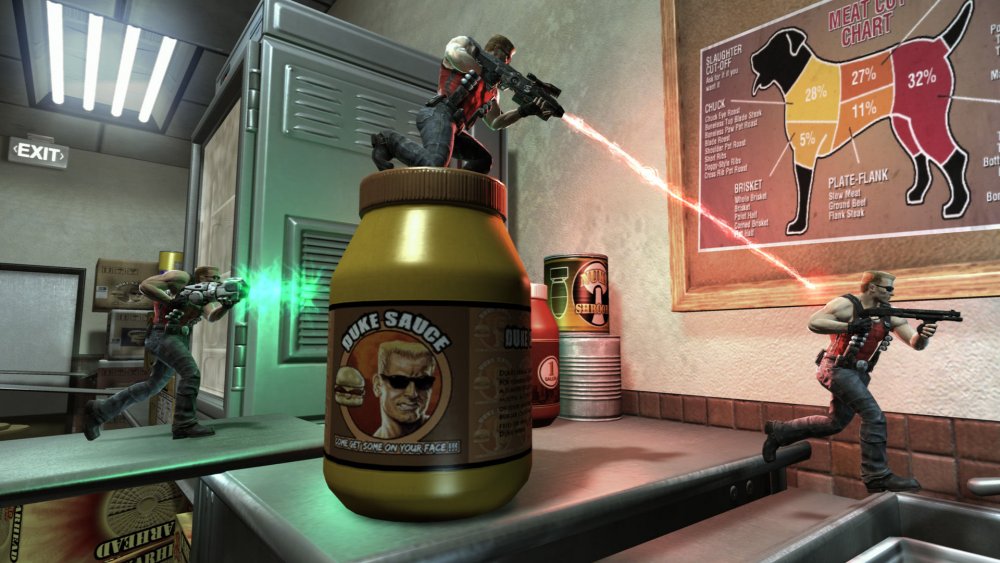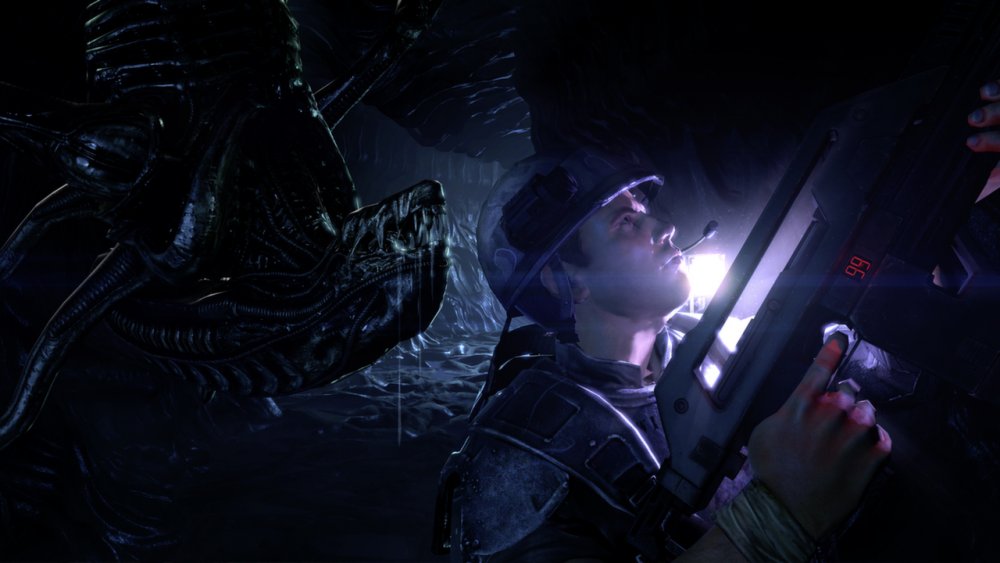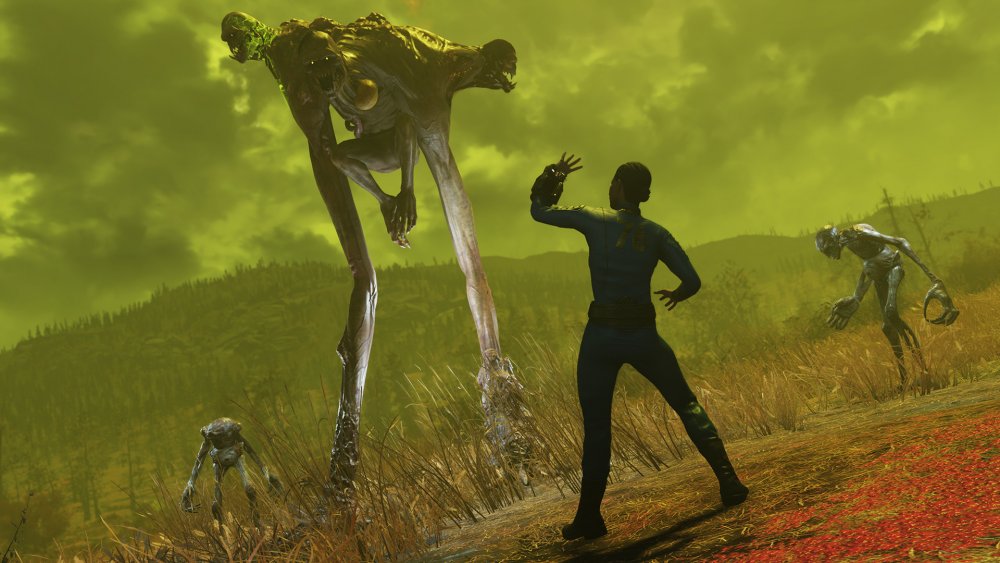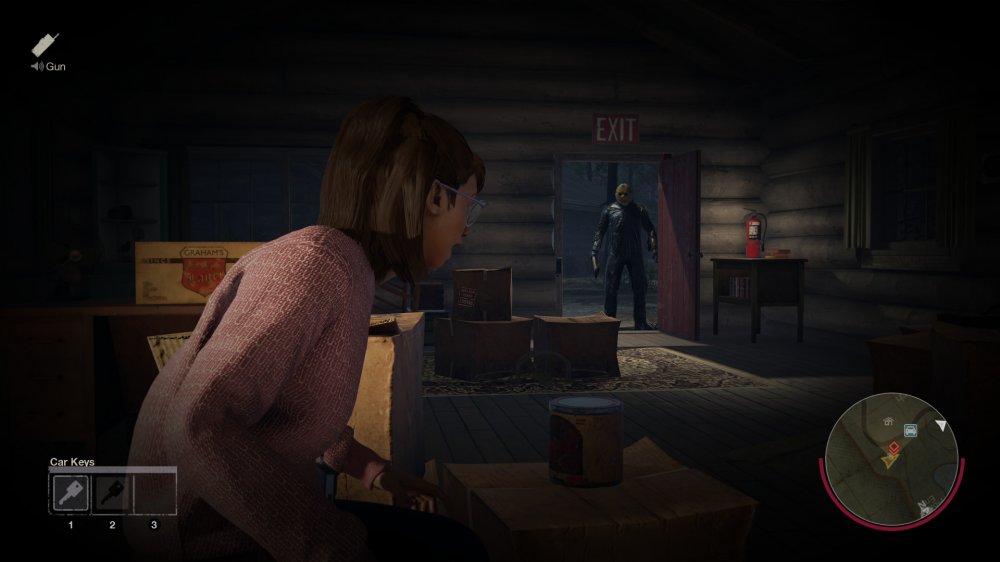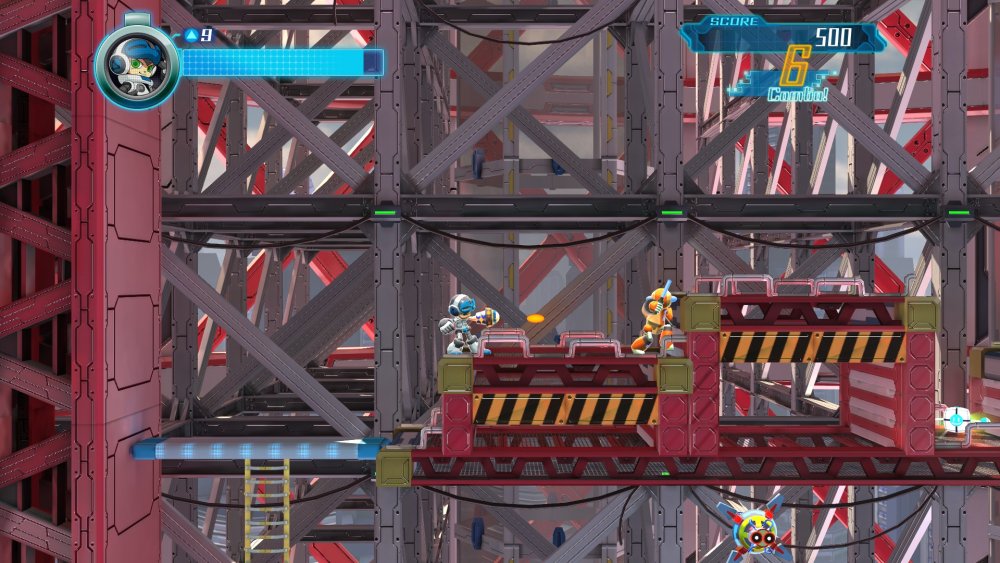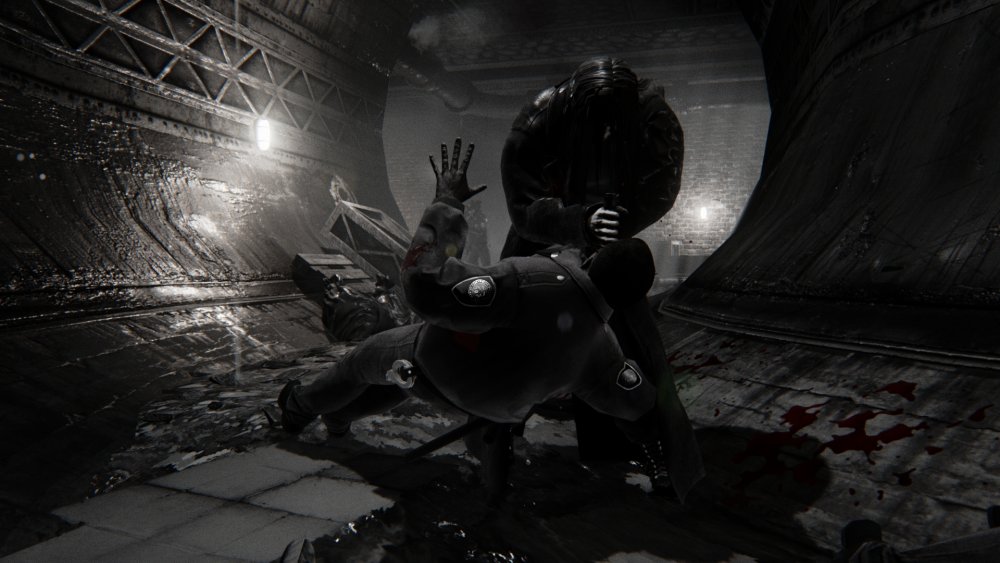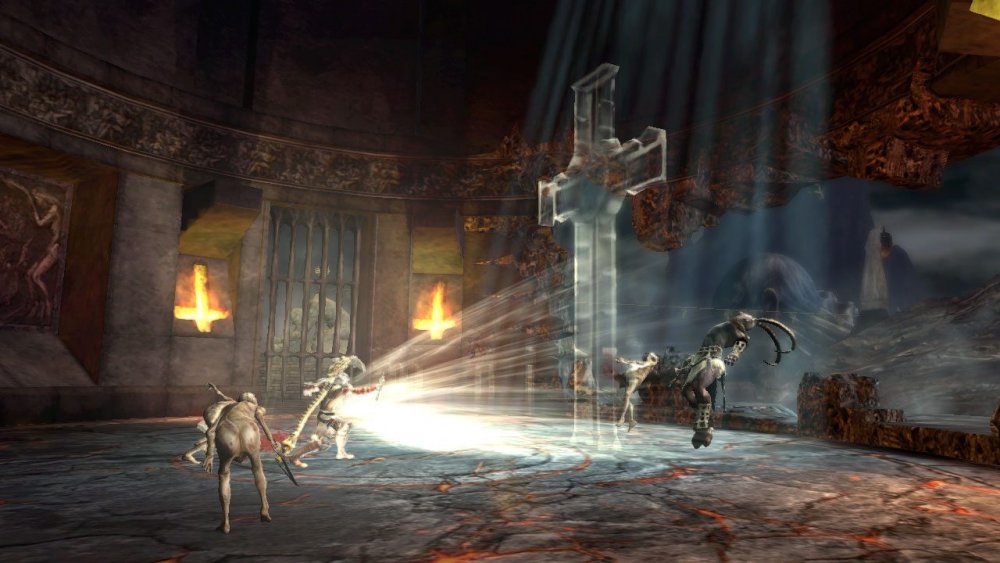Games That Were Doomed After One Unfortunate Statement
From writing descriptions on the back of the box, to running social media campaigns, or even making press releases, there is a ton of communication that goes into successfully releasing a modern video game. Often, companies will invest big bucks into the marketing for a particular title. Because of how much rides on the marketing strategy for a game, a good marketing campaign can really pay off in the long run. On the other hand, a bad marketing strategy can destroy a game's prospects before it even hits the market.
But on the rare occasion, a simple statement can be the cause of — or at least heavily contribute to — a game's unexpected demise. Some games are bad enough to fail on their own merits, but a failed PR tactic, a bad interview, or a weirdly worded game description is sometimes enough to do a release in.
Here is a list of ten titles that fell victim to one unfortunate statement.
Anthem met its fate five months ahead of schedule
In 2017, EA revealed Anthem, an online role-playing game akin to titles like Destiny and Tom Clancy's The Division. The game is set on an unnamed planet where soldiers called Freelancers stave off the encroaching threats of The Monitor, a member of the sinister Dominion.
After Anthem's announcement, Game Informer's Joe Juba sat down with Mark Darrah, Anthem's executive producer, to talk about the game. At one point, Juba asked, "So are you guys looking forward to just overhauling all the game's systems in like a year and a half?" In response to this question, Darrah responded, "Uh, I would hope not."
Upon the game's release, the game was met with mixed to negative reviews and was plagued with bugs that required immediate attention. Ultimately, the game failed to meet EA's sales expectations.
In September of 2019, it was announced that many of the post-launch additions to the game were being shelved so the developer could focus on core problems with the game. The following February, BioWare released an update stating it would be redesigning Anthem entirely. Unfortunately, Darrah's statement now stands as an example of bitter irony, both for the developers and for the customers who experienced Anthem in its turbulent first year.
Destiny 2 had its destiny foretold in a tweet
Destiny 2 has been on a wild ride since its release all the way back in 2017. Things got shaken up majorly in January of 2019 when the game's developer, Bungie, dissolved the publishing agreement that it had struck with Activision, who had been publishing the game up to that point. With this corporate break up came a new update, Shadowkeep, along with significant gameplay changes and a switch to a free-to-play model.
But just as the free-to-play players were streaming into the game, there were some unfortunate online hiccups. In a patch that rolled out in January 2020, players logged in to find some of their items and in-game currencies missing from their accounts. Bungie was forced to roll back player accounts for the first time ever, negating the progress some had made in the game.
A few weeks later, another patch arrived. This time, a Bungie community manager went to Twitter to announce the new update, jokingly saying, "hopefully this time we don't nuke your currencies this time around..." As well-intentioned as the tweet was, the new update didn't exactly go as planned. Once again, players lost items and hard-won currencies.
Bungie ended up using the same method to solve this issue: rolling back all player data to the time before the update.
"This is entirely my fault," the community manager later tweeted.
WWE 2K20 got pinned
When Yuke's, the developer behind the WWE games, left WWE 2K20 during the game's development, the developer Visual Concepts stepped up and was granted full control of the project. In an interview with GameSpot, Lynell Jinks, the creative director of Visual Concepts, described the experience stating, "I think freeing is the first feeling that you get...When you realize that now that all the ideas that you had and wanted to pursue are now at your fingertips, that's the first feeling you have..."
Unfortunately, players didn't share the same enthusiasm. The announcement of Yuke's removal from the project followed WWE 2K20's first reveal trailer, which seemed par for the course compared to other games in the series. However, the graphics shown in the trailer didn't at all match the final product, which was littered with poor quality animations, glitches, and a horribly clunky online mode.
Based on the abundance of negative reviews, it seems that most would not categorize their time playing WWE 2K20 as a freeing experience.
Duke Nukem Forever was forever changed by its PR
While a bad review can undoubtedly make or break a game, a bad PR move can doom a game before it even hits store shelves. Thus is the case with Duke Nukem Forever. Following a preview event in Los Vegas, Duke Nukem Forever received negative reviews that ultimately panned the game.
In response to the negative press, The Redner Group, — the PR firm hired to promote Duke Nukem Forever – threatened to blacklist certain outlets entirely. The firm took to Twitter, stating, "Too many went too far with their reviews...we are reviewing who gets games next time and who doesn't based on today's venom...Bad scores are fine. Venom filled reviews... that's completely different." This was a resoundingly unpopular move, and The Redner Group later released another tweet apologizing for its outburst, though the tweet has since been deleted.
Once Duke Nukem Forever became available to the general public, it was received poorly by players, cementing the game as more than just a PR nightmare. Though the game's failures shine through without The Redner Group's lack of judgment, in general, it's probably not in anyone's best interest to burn bridges with the critics who cover your products.
Aliens Colonial Marines didn't need a xenomorph to kill it
With the momentum of Gearbox Software's Borderlands games propelling the studio to rising star status in the industry, the company was poised for another hit with its video game entry into the Aliens canon. Gearbox's next game, Aliens Colonial Marines, was set to pick up where 1986's Aliens left off. And to show off the game's capabilities, Gearbox CEO Randy Pitchford advertised a pre-rendered demonstration at several press events.
Attendees were wowed by the environment rendering and the insidious artificial intelligence displayed by the enemy xenomorphs. Though the graphics would fail to live up to expectations, in the end, Pitchford's promise of new technology is what would ultimately land him in hot water.
In an interview with Destructoid, Pitchford touted the next-generation technology that would be shipping with the game, saying, "It's very possible that Aliens: Colonial Marines is the first commercial product to ship with deferred lighting." However, when the game was released, many noted the lackluster visuals, boring story, and uninspired gameplay and reviewed the game accordingly.
As a result of the negative press, Pitchford found himself fending off accusations of lying to the public through embellished demos. In the end, what would have been another average first-person shooter became an object of ridicule due to inflated expectations. The exaggerated claims made to market the game even resulted in a somewhat successful lawsuit which alleged that Sony and Gearbox had engaged in false advertising.
Fallout 76 faced fallout from a canvas bag controversy
At E3 2018, Bethesda CEO Todd Howard got on stage and, in his usual charismatic way, revealed the next game in the Fallout franchise: Fallout 76. During this presentation, Howard said many things that some would take issue with upon retrospection but had fans excited at the time.
Howard said that the new game would have 16 times the detail of previous entries. He emphasized how the choices made in-game would shape the Fallout world. But the one statement that sank the Fallout 76 ship had to do with the segment where Howard talked about the special edition of the game. Among the extra goodies packed into the special edition package were a power armor helmet and a canvas bag to carry it in. When customers started getting their special editions of the game, however, they noticed the bag was made out of flimsy nylon instead of the canvas that was promised.
One customer reached out to Bethesda to fix what they thought was surely a mistake, and the company's response went viral. The customer took to Reddit, where they posted screenshots of the emails they had exchanged with company reps.
"We are sorry that you aren't happy with the bag..." a representative said. "We aren't planning on doing anything about it."
For a game that was experiencing significant problems upon release, hearing that the company didn't care to fix problems that people paid a premium to encounter was enough to shake what little confidence remained in Fallout 76.
Friday the 13th was dead in the water
Though the game released to mixed reviews, Gun Media's Friday the 13th had plenty of fun frights to offer fans looking for a return to Camp Crystal Lake. With planned DLC on the way and promised updates, the game only seemed to be improving — that is, until everything came to a halt after the growing legal conflicts between screenwriter Victor Miller and the film's producers stalled the game's progress.
Looking to regain copyright ownership of the series, Miller — who wrote the screenplay for the first Friday the 13th film — disputed the assertion made by producers that the screenplay was created under a work-made-for-hire agreement. After a year of waiting for an official ruling, U.S. District Court Judge Stefan Underhill stated that Miller would have been classified as an independent contractor, ruling in favor of Miller. Essentially, Miller was given copyright control over the Friday the 13th brand, including Gun Media's game within the United States.
While the ruling was undoubtedly a victory for Miller, it was practically a death sentence to the Friday the 13th game. Following the verdict, Gun Media released a statement saying, "We've now been forced to accept that the lawsuit makes future content for the game, including alternate play modes, new playable Jasons and Counselors, and new maps, unfeasible now or in the future."
With all future DLC canceled, the game was stuck without any new content and an atrophying player base.
Mighty No. 9 wasn't as mighty as it seemed
On Aug. 31, 2013, legendary game designer Keiji Inafune made a Kickstarter for a spiritual successor to Mega Man called Mighty No. 9. Needless to say, it received a lot of attention. After 48 hours, an update was posted to the campaign page that featured a video message from Inafune himself, personally thanking backers for fully funding the project.
However, the Kickstarter ran into a few issues: namely, major delays. Many backers started having concerns about receiving the product that they'd paid for as the months and years went by.
Then Inafune launched a Kickstarter campaign for Red Ash, a spinoff game, on July 4, 2015. In the description section of that Kickstarter page, the development team included the sentence, "We are utilizing our experience from the Mighty No. 9 Kickstarter to set realistic stretch goals and keep tight control over the project." With consumers still not seeing any results from the previous Kickstarter campaign, it was hard for many to fathom how Inafune could be working on a new game before his last game was released. Red Ash ultimately failed to reach its crowdsourced funding goal, reflecting the fading enthusiasm for Inafune's projects.
In the end, customers who had backed Mighty No. 9 in 2013 felt taken advantage of. After the game released to mostly negative reviews in 2016, it seemed apparent Inafune hadn't given the title the time and attention it deserved.
Hatred became hated
In 2014, Polish developer Destructive Creations announced a new game called Hatred. The shooter focused on a mass murderer who, instead of taking on an evil overlord or alien invader, kills innocent civilians. A statement on Destructive Game's official site described Hatred as "[...] a game about killing people." Understandably, Hatred was met with instant disapproval.
Violence in video games has been a nearly constant debate since the medium's inception. However, what made Hatred unique is that, unlike most other games, the player assumed the role of a mass murderer killing innocents in a violent rage. Considering that mass shootings have been on the rise, a game where the player mows down innocents wasn't likely to be well-received.
Add the flippant attitude displayed by Destructive Creations, and it became clear that Hatred was a game created with the intent to ruffle feathers. Hatred was widely labeled a "mass shooting simulator" in the mainstream press, making the game a hard sell for general audiences.
Dante's Inferno put its deadly sins on display
During E3 2009, a group of protesters gathered outside of the Los Angeles Convention Center in protest of EA's upcoming title, Dante's Inferno. The small group of protestors held signs and passed out flyers chastising the game for its seemingly anti-Christian themes. The excitement caught the attention of media outlets, who reported on the protests and even interviewed some of the angry protestors.
While Christian groups angrily protesting a violent video game makes for an exciting headline, the real story is a bit more convoluted. EA spokeswoman Tammy Schachter later confirmed the protest was actually a PR stunt orchestrated by none other than EA itself. EA hired the protestors to drive interest in Dante's Inferno by stirring up a controversy.
This move was met with backlash by Christian groups and bloggers, who felt that they were being stereotyped as prudish and thin-skinned. Though the game did okay overall, it's more than likely that the PR stunt didn't do the new IP any favors in the long run. When asked about the prospect of making a sequel in 2010, Visceral associate producer Zach Mumbach said, "I'm sure that if enough people are like, 'I got 60 dollars for Purgatory or Paradiso,' then we would make that game. But I don't know. I don't get to make those decisions."
Mumbach then said that EA was not pressuring the company to develop a sequel. To this date, there still hasn't been one.

